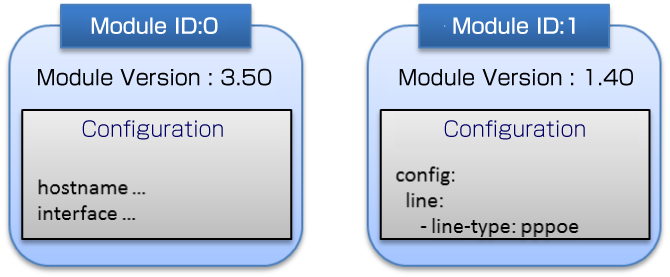Module Overview¶
SACM allows you to separate and manage service adaptor functions based on the concept of “modules.” In SACM, a module is based on a concept of organizing functions and configurations as a set, and managing functions within a device by managing them in categories.
Traditionally, with equipment such as a router a single binary image we refer to as “firmware” is used to store all functions. As such, a partial expansion of functions within that firmware requires an update of the entire firmware image. Conversely, in a typical Linux server, internal programs are packaged in the form of rpm or deb and updates can be executed at the package level. You can view an SACM module as something similar to the method of management achieved with rpm and deb packages.
The following information is defined within a module.
Module ID
ID used to uniquely identify a module within SACM. A different ID is assigned to each module. This is a unique ID within the device.
Module version
Indicates the module version number. Version numbers can be assigned on a per module basis.
Config
Manages configurations on a per module basis.

In SACM, at least one module is defined in the service adaptor. Exactly how many modules are defined will depend on the specifications of the device.